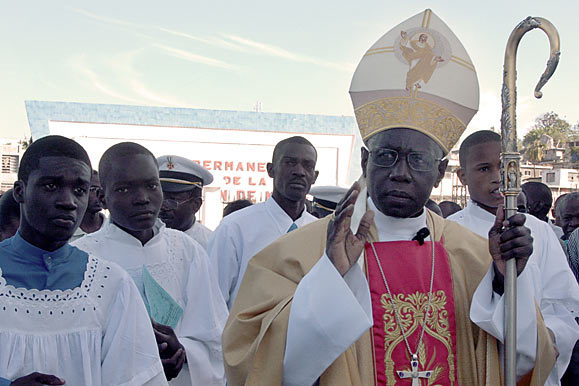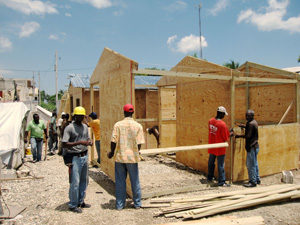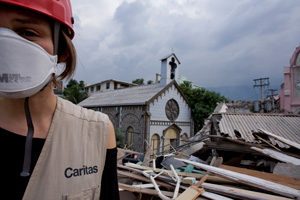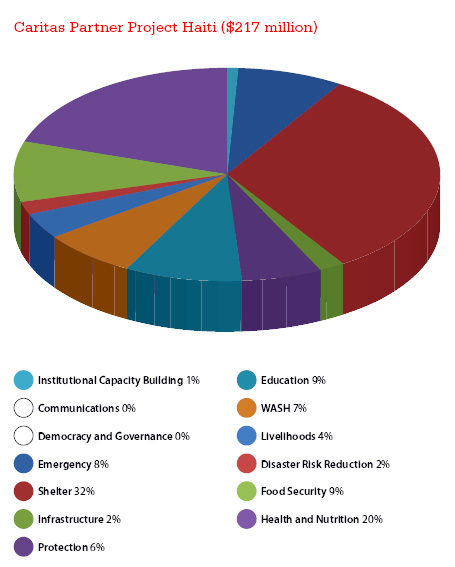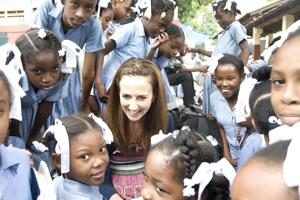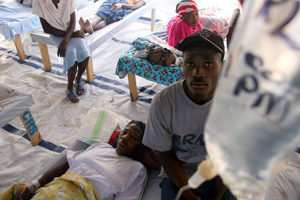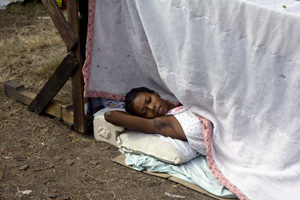
Caritas’s humanitarian experience had helped it recognise that crowded camps, with limited clean water and poor sanitation, were the perfect combination for another brewing disaster: a cholera outbreak. Caritas had begun distributing soap and building stand pipes and latrines as soon as possible after the earthquake. “For some people, it is the first time they ...

